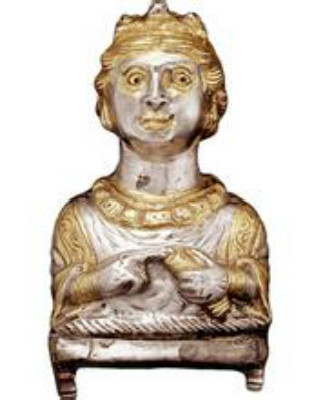None of these opulent culinary inventions could have been created without ample seasoning and the primary spice would have been pepper.
这样丰富的菜单自然离不开大量的调味品,而当时最主要的香料便是胡椒。
Why has this particular spice remained so constantly attractive? We asked the author and academic Christine McFadden about the importance of adding a bit of pepper to your recipe:
为何这种香料具有如此持久的吸引力呢?我曾询问过作家克莉丝汀麦克法登在食物中加入胡椒的重要性:
"As an early twentieth-century French chef said - no other spice can do so much for so many different types of food, both sweet and savoury. It contains an alkaloid called piperine, which is responsible for the pungency, and what it does to the body is ... it promotes sweating, which cools the body, which is essential for comfort in hot climates. It also aids digestion, it titivates the taste buds and makes the mouth water. And the other thing-there is research which suggests that it might be a factor in transforming the chemical energy we get from food into what is called heating energy, so in other words, it keeps us warm."
人们对胡椒的欲望永无止境,甚至为了它大动干戈。每一份罗马食谱的开头都是:“把胡椒放进…”一位二十世纪早期的大厨认为,没有别的哪种香料能为如此众多的食物提味,不管甜咸,都能搭配。它含有一种名为胡椒碱的生物碱,能给人辛辣的口感,让人大量出汗,从而降低体温,使人在炎热的天气里感觉舒适,同时也能促进消化,剌激味蕾,促进唾液分泌。而其他物质,有研究表明可能是一个因素将我们从饮食中获得的化学能转换成所谓的加热能源,换句话说,为我们保暖。
The closest place to Rome where pepper actually grew was India, and so the Romans had to find a way of sending ships to and fro across the Indian Ocean and then carrying their cargo overland to the Mediterranean. Whole fleets and caravans laden with pepper would travel from India to the Red Sea, then across the desert to the Nile. It was then traded around the Roman Empire by river, sea and road. This was an immense network of trade; complicated and dangerous, but highly profitable. Here's Roberta Tomber again:
离罗马最近的胡椒原产地是印度。罗马人让货船往返于印度洋上,将货物运抵地中海。整支商队满载着胡椒从印度来到红海,然后穿越沙漠到达尼罗河岸,再通过河路,陆路到达罗马帝国。这一贸易网络关系复杂危险,但利润奇高。罗伯塔补充道:
"We have Strabo in the first century AD saying that 120 boats left every year from Myos Hormos-that's a port on the Red Sea-to India.
斯特雷波称,一世纪时,每年都有120艘船从港口米奥斯-霍密斯前往印度。













